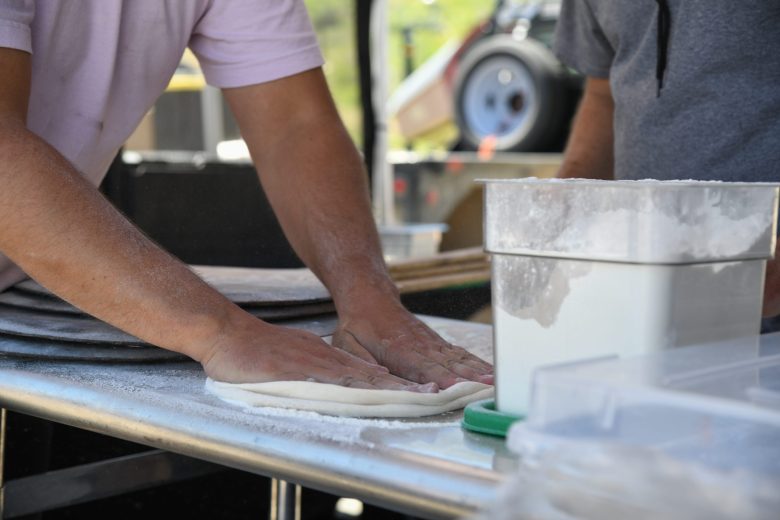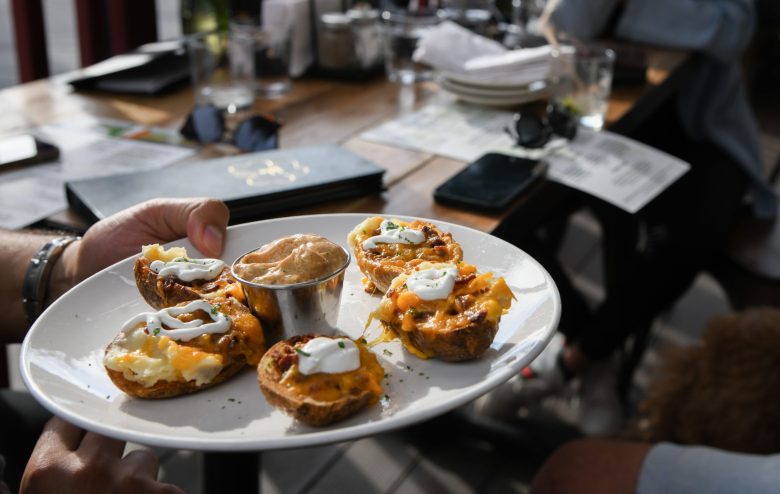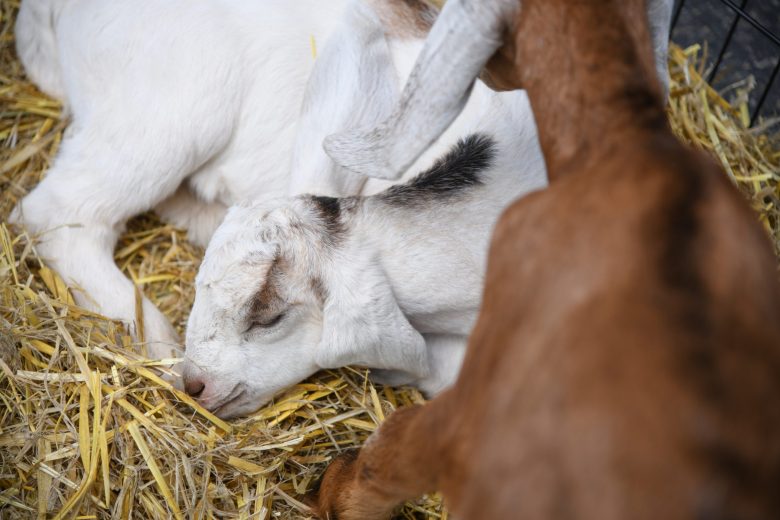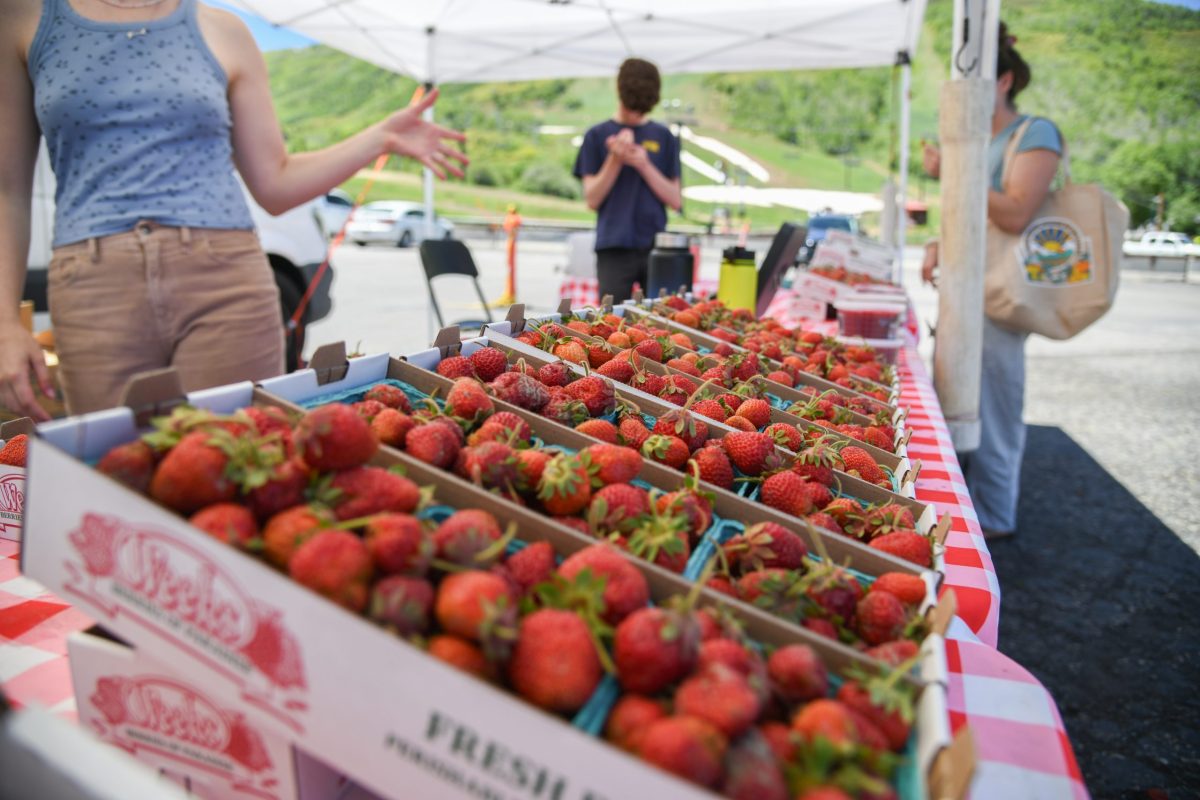The Park City Farmers Market celebrates 24 years of providing the greater Park City area with fresh, organic, and non-GMO produce and other locally-sourced products this year.
The weekly market runs from 11 a.m. to 5 p.m. on Wednesdays at Park City Mountain’s First Time chair lift lot, and both parking and admission are free.
Volker Ritzinger, the market’s founder and organizer, is looking forward to this year’s season that runs at least through the middle of October. “The First Time lot is where it all started more than two decades ago,” he says.
When Ritzinger first came to the United States from his native Austria in 1989 to play hockey, he didn’t speak a word of English, but he had ideas. “I was a dishwasher for the Park City Pizza Company, but I wanted to make things better and do something for the people in town, so I moved forward,” he recalls.
He saw his chance in August 2001 when he volunteered to take the original farmers market that was set up at Park City Mountain when the resort wanted to shut it down to make way for 2002 Olympic preparations.

The partnership with Park City Mountain and its parent company Vail, which started with Mike Goar, former chief operations officer at Park City Mountain, has established the Park City Farmers Market as an integral part of the community and a staple of summer in Park City,” says Emily McDonald, the resort’s communications manager. “We’re proud to host the Park City Farmer’s Market and provide a space for local farmers and artisans to share their produce and goods with the community.”
Because of Ritzinger’s dedication and passion for the market, he has become the longest continuing farmers market manager in the state of Utah. “In other places there are cities that manage the markets, and in other places the management changes all the time, but I’ve been doing this ever since,” he explains.
To ensure the Park City Farmers Market provides quality goods, Ritzinger researches and visits farmers and other purveyors throughout the state, and, in some cases, the Intermountain West.
“I’m always on the lookout for things that people want, and I want to make sure there are things there that people ask for,” he continues.
While Volker offers freshly baked artisan breads and other European pastries at the Park City Farmers Market from his own business, Volker’s Bakery, he has, throughout the years, cultivated a “family” of participants who return to the market each season.
For the past few seasons, the Ioulia Greek Olive Oil Company has given Park City Farmer’s Market patrons a taste of what Grecians call “liquid gold,” according to the company’s proprietor Christina Bhanos.
The Park City-based business, named after Bhanos’ mother-in-law, Ioulia Antonopoulos, who passed away in 2017, sources its oil from Ioulia’s brother’s olive tree farm, located in a little village called Schilolaka, which is 40 kilometers — about 25 miles — outside the city of Kalamata in southern Greece.
Because the trees grow in a staggered fashion, the olives must be harvested by hand to prevent them from bruising. Once pressed, the oil is poured into 4.33-gallon metal containers that are shipped 45 containers at a time from Greece to Chicago. From Chicago the oil is freighted to Salt Lake City, and Bhanos’ employees hand bottle it in Park City.

Ritzinger confirmed that Ioulia Olive Oil Company will be at this year’s Park City Farmers Market on select weeks, due to prior commitments.
Another longtime vendor is Weeks Berries of Paradise, headquartered in Cache Valley. It specializes in growing and selling fresh blackberries, blueberries, currants, raspberries, and strawberries.
The farm began growing berries and making freezer jam in 1985. And since the farm grows and processes its own fruit, it can oversee the entire process the fruit goes through from planting to harvesting and processing.
Volker also is mindful of other purveyors who aren’t the typical farmers market vendors.
Veterans and those from the Indigenous communities are also welcome to sell their wares, and they aren’t required to pay the market’s minimal $120 application fee.
“(Veterans) put their lives on the line for this country, and if they have a little idea, I want them to come and sell it,” he explains. “And (those in the Indigenous community) are welcome to sell their beautiful handmade jewelry and things like that.”
Still, organizing and presenting the Park City Farmers Market poses unique challenges. In the early days, local health departments ran farmers markets in their communities and it was a complicated system because each county had different sets of rules and regulations. That changed 15 years ago when Volker worked with the Department of Agriculture to streamline farmers market rules and regulations.
“That was the greatest thing we’ve ever done,” he says. “Since then, the Department of Agriculture has one set of rules for all the counties in the state, and it’s easy for all the farmers markets to deal with only one entity.”
During the coronavirus pandemic, Ritzinger found himself on the front lines in establishing the state’s farmers market protocols, which included 10-feet social distancing between stations and one-way foot traffic from entrance to exit.

Ritzinger also champions the idea that farmers markets are outdoor grocery stores and not special events, which makes a difference in the types of permits he needs to set up shop.
“Special events put on a good show and make money,” he explains. “Park City Farmers Market is different, because you can’t charge vendors extraordinary fees. You have to take care of the farmers. There isn’t a lot of money in this for me, but it isn’t about money. People have to realize that you do something because of a passion.”

